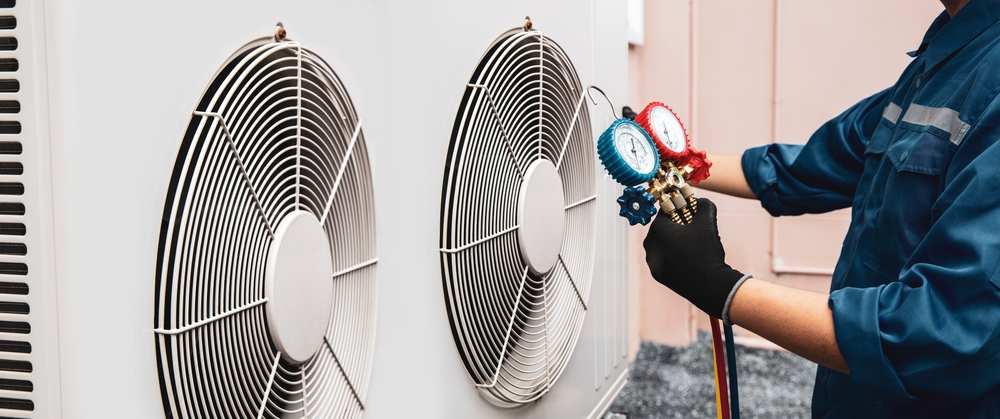
When it comes to maintaining a comfortable and safe environment in commercial buildings, HVAC (Heating, Ventilation, and Air Conditioning) systems play a critical role. However, ensuring these systems operate effectively and safely involves more than just regular maintenance. Compliance with various regulations is essential. In this article, we’ll explore the specific regulations for commercial HVAC systems and why adherence to these regulations is crucial for both business owners and facility managers.
Why Are HVAC Regulations Necessary?
Regulations for commercial HVAC systems are designed to ensure safety, efficiency, and environmental responsibility. Non-compliance can lead to several issues, including increased energy costs, safety hazards, and legal repercussions. By adhering to regulations, businesses can avoid these pitfalls and contribute to a healthier environment.
Overview of Regulatory Bodies
Various regulatory bodies oversee commercial HVAC systems. These include the Occupational Safety and Health Administration (OSHA), Environmental Protection Agency (EPA), and the American Society of Heating, Refrigerating and Air-Conditioning Engineers (ASHRAE). Each of these organizations has specific guidelines and standards that must be followed to ensure compliance.
Key Regulations for Commercial HVAC Systems
OSHA Regulations
OSHA sets forth regulations to ensure that HVAC systems in commercial buildings do not pose a risk to employee health and safety. This includes proper ventilation to prevent the buildup of harmful substances, regular maintenance to prevent system failures, and adherence to specific safety standards during installation and repair.
EPA Regulations
The EPA focuses on the environmental impact of HVAC systems. Regulations include the management of refrigerants to prevent ozone depletion, adherence to energy efficiency standards, and proper disposal of HVAC equipment to minimize environmental harm. The Clean Air Act, enforced by the EPA, is a critical piece of legislation that impacts commercial HVAC systems.
ASHRAE Standards
ASHRAE develops standards for HVAC system design and operation, focusing on energy efficiency, indoor air quality, and overall system performance. Compliance with ASHRAE standards is often mandated by local building codes and is essential for ensuring systems operate effectively and efficiently.
Specific Areas of Compliance
Refrigerant Management
One of the most critical areas of compliance involves the management of refrigerants. The EPA’s Section 608 of the Clean Air Act requires proper handling, recycling, and disposal of refrigerants. Technicians must be certified to handle refrigerants, and records of refrigerant use and disposal must be meticulously maintained.
Energy Efficiency Standards
Commercial HVAC systems must meet specific energy efficiency standards to reduce energy consumption and environmental impact. The Department of Energy (DOE) sets these standards, which are periodically updated to reflect advances in technology and changes in energy policy. Compliance with these standards not only reduces energy costs but also supports sustainability efforts.
Indoor Air Quality
Ensuring good indoor air quality is essential for the health and comfort of building occupants. ASHRAE Standard 62.1 outlines the minimum ventilation rates and indoor air quality requirements for commercial buildings. Compliance with this standard helps prevent issues such as mold growth, airborne contaminants, and inadequate ventilation.
The Role of Building Codes
Local Building Codes
Local building codes often incorporate standards from OSHA, EPA, and ASHRAE, making compliance with these codes essential for legal operation. These codes can vary significantly by location, so it’s crucial for business owners and facility managers to be familiar with the specific requirements in their area.
Inspections and Certifications
Regular inspections and certifications are often required to ensure ongoing compliance with building codes and HVAC regulations. These inspections can identify potential issues before they become significant problems, helping to maintain system efficiency and safety.
The Benefits of Compliance
Improved Efficiency and Cost Savings
Compliance with commercial HVAC regulations often leads to improved system efficiency, resulting in lower energy costs. Efficient systems require less maintenance and have longer lifespans, providing additional savings over time.
Enhanced Safety and Health
Regulations are designed to protect the health and safety of building occupants. By ensuring proper ventilation, managing refrigerants safely, and maintaining good indoor air quality, businesses can provide a safer and healthier environment for employees and customers.
Legal and Financial Protection
Non-compliance with HVAC regulations can result in hefty fines and legal actions. Adhering to regulations helps businesses avoid these penalties and protects against potential lawsuits related to health and safety violations.
Strategies for Ensuring Compliance
Regular Maintenance and Inspections
One of the best ways to ensure compliance is through regular maintenance and inspections. Routine checks can identify potential issues early, allowing for timely repairs and adjustments. Keeping detailed records of maintenance activities and inspections is also crucial for demonstrating compliance.
Professional HVAC Services
Working with professional HVAC service providers who are familiar with commercial hvac regulations, commercial hvac compliance, and the specific requirements in your area can make compliance much easier. These professionals can provide expert guidance, perform necessary maintenance, and ensure all regulatory requirements are met.
Training and Certification
Ensuring that all personnel involved in HVAC system maintenance and operation are properly trained and certified is essential. This includes certification for handling refrigerants and training on the latest standards and regulations.
Conclusion
Compliance with commercial hvac regulations and commercial hvac compliance is not just a legal requirement; it’s a critical component of responsible business operation. By understanding and adhering to these regulations, businesses can ensure safe, efficient, and environmentally friendly HVAC systems. Regular maintenance, professional services, and proper training are key strategies for maintaining compliance and reaping the many benefits it offers.
Need a Commercial HVAC Contractor in St. Louis Park, MN?
Locally owned and operated since 1991, Air Climate Control Inc specializes in commercial service and repair of air conditioning, heating, and refrigeration, serving Minneapolis and the surrounding areas with quality, prompt, and reliable work. Air Climate Control Inc strives to provide same-day service to ensure client comfort and satisfaction. We specialize in preventative maintenance plans as well as repair and can sub-contract for installation service. Our estimates are always FREE of charge. Call us TODAY for all of your commercial refrigeration, air conditioning, and heating needs!
